Pancreatic cancer: NI patients to trial new exercise scheme
- Published
- comments
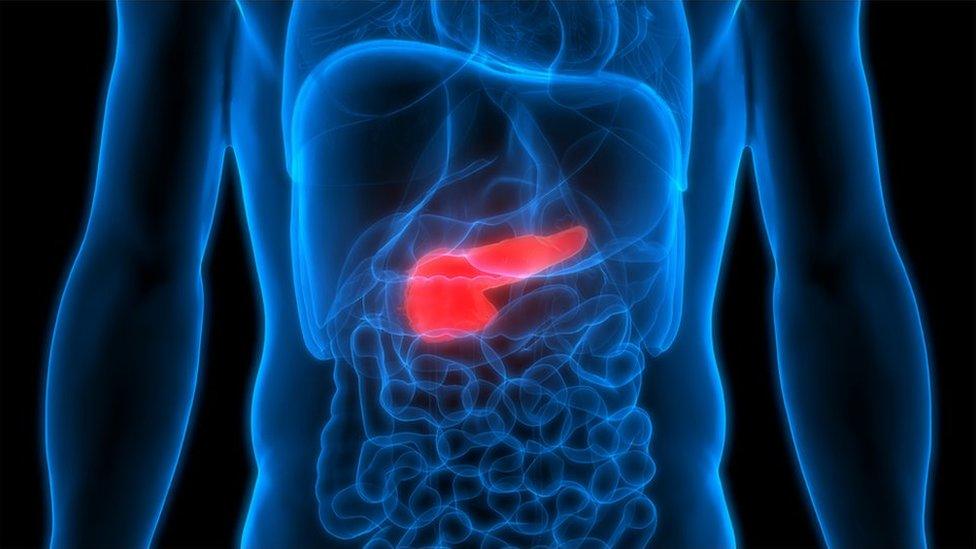
Of the 20 most common cancers, pancreatic cancer has the lowest survival rates
Pancreatic cancer patients in Northern Ireland are to be the first in the UK to trial a new exercise programme to aid post-surgery recovery.
It comes after Queen's University Belfast was awarded a grant of more than £100,000 from Pancreatic Cancer UK.
Researchers will work with patients who have had surgery to design bespoke exercise programmes.
If successful, it is hoped the project will be rolled out across the UK.
Of the 20 most common cancers, pancreatic cancer has the lowest survival rates.
The only cure for the condition is a 12-hour operation, which often means removing part, or all, of the pancreas and making changes to the digestive system.
There can often be side effects such as pain, fatigue and anxiety.
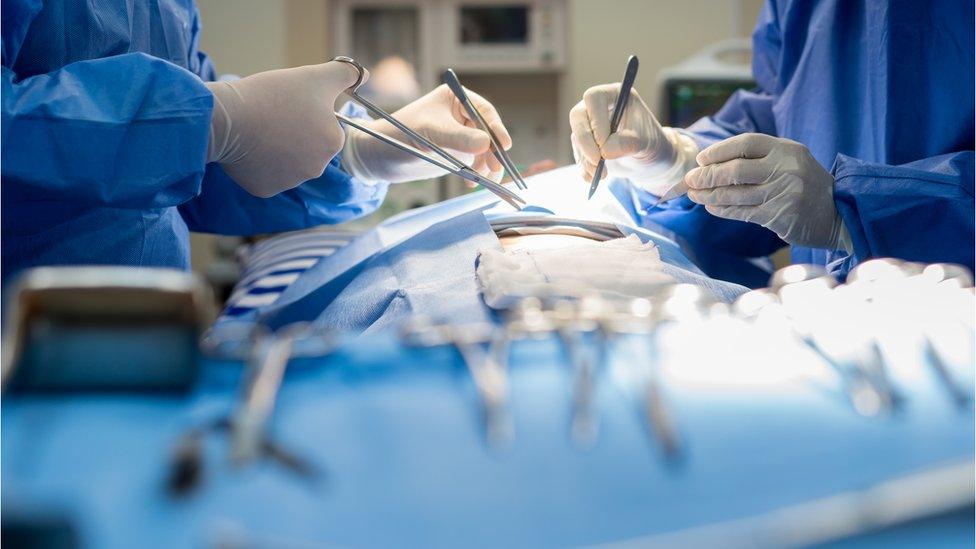
The operation can take quite a toll on patients
Researchers hope that over the course of the next two years they will be able to find exercise techniques which will ease symptoms.
Certain exercises have shown to benefit breast and prostate cancer patients.
Following surgery, people taking part in the scheme will take resistance and aerobic exercise at their own pace, alongside chemotherapy.
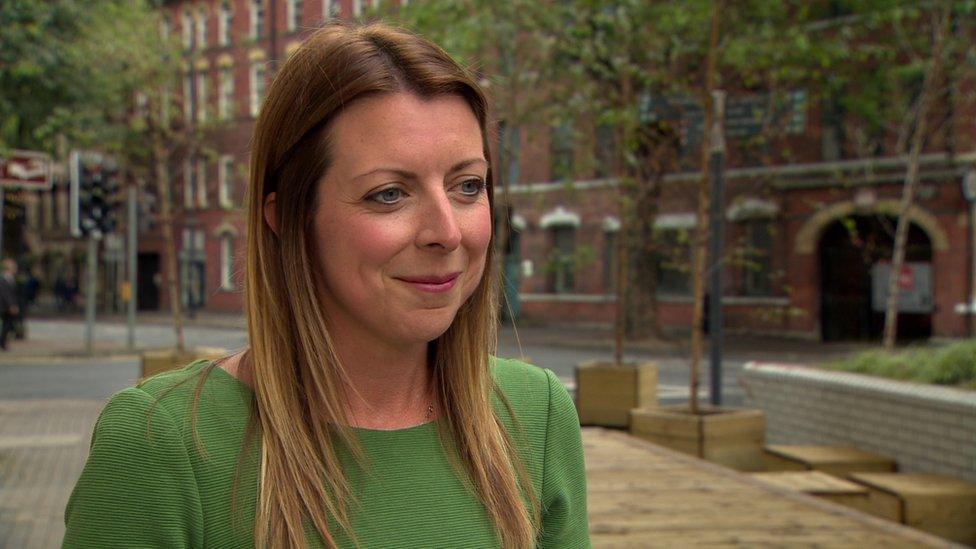
Senior lecturer Gillian Prue believes exercise can help to stop the decline of pancreatic cancer patients
Gillian Prue, senior lecturer at Queens University, told BBC News NI she believes exercise will help the survival of pancreatic cancer patients.
"Patients undergo extensive surgery, they have difficult chemotherapy, their function isn't great so we are helping that by bringing them into the gym," she said.
"We will work with them to develop their own exercise plan and we hope we will reduce and stop their decline happening and they will be able to tolerate chemotherapy better."
'Massive impact'
Tom Hawthorne, 61, was diagnosed with pancreatic cancer in August 2017, and said cycling helped him overcome the side-effects of surgery.
"I was told that it was going to be a pretty tough operation but at that stage I did not fully grasp what that actually meant," he said.
"For me, the operation was totally devastating. It was really tough, physically and psychologically."
Mr Hawthorne said it was an uphill battle, but when he eventually got back on to his bike, it "had a massive impact" on his recovery.
"Not everyone can do it, but it's well worth doing your best. You will feel the benefit," he added.
Meanwhile, Dr Chris MacDonald, head of research at Pancreatic Cancer UK, says research into pancreatic cancer has been "grossly underfunded for decades".
"The potential positive impact of this project devised by the team at Queen's University Belfast is hugely exciting and I am delighted it is our first ever funded research in Northern Ireland," he said.
- Published25 April 2019
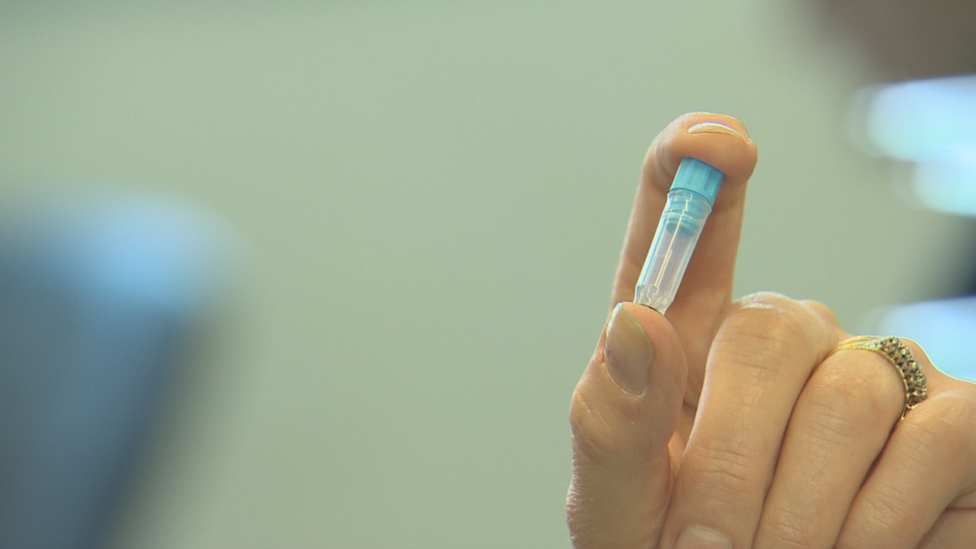
- Published24 January 2019
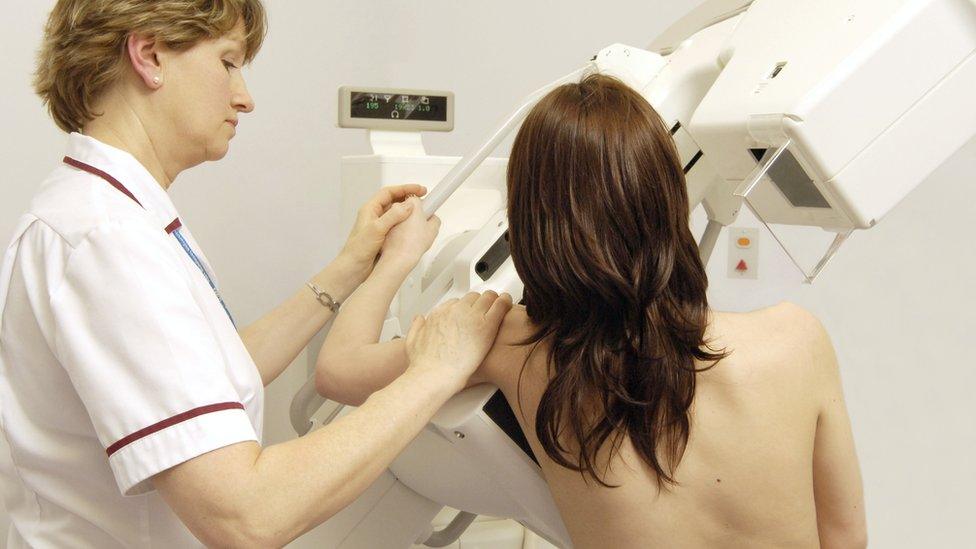
- Published1 November 2017
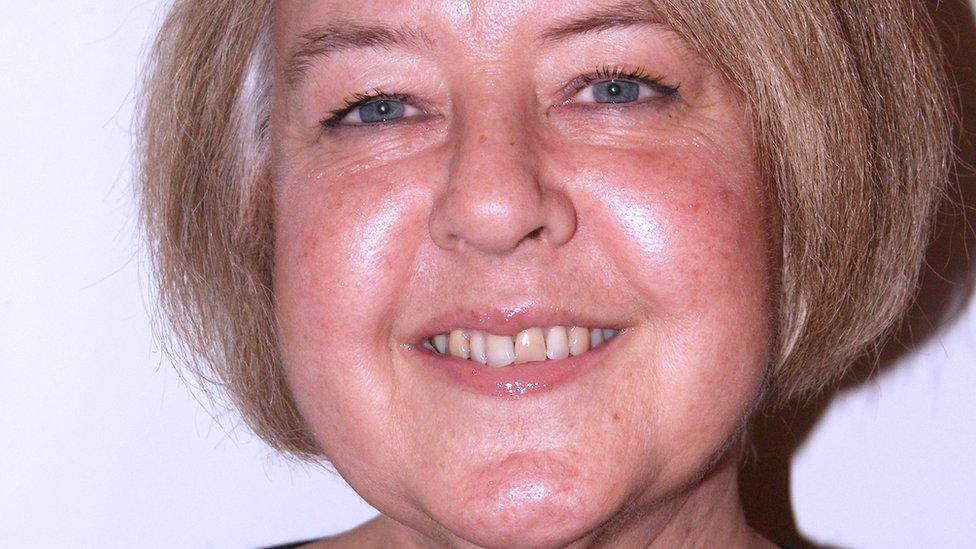
- Published3 June 2016
